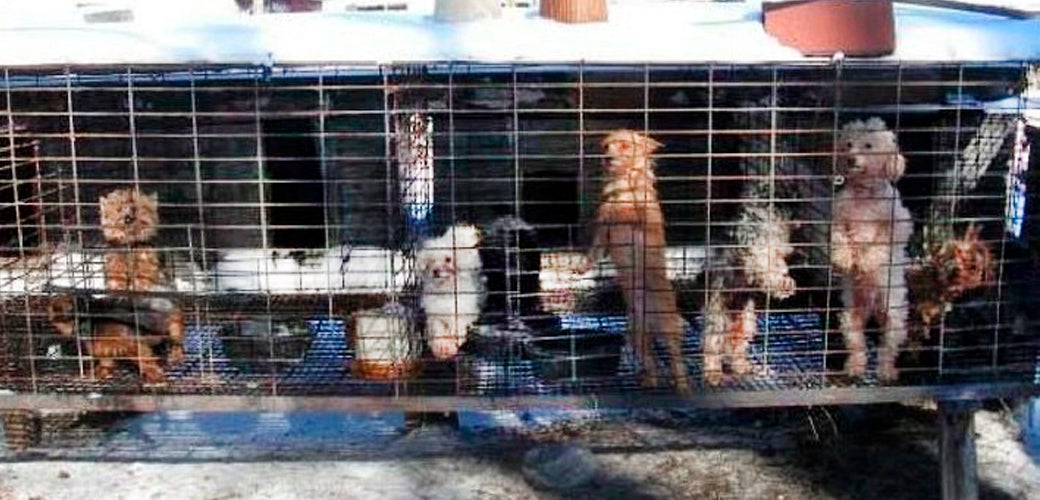
Still Ill: Puppy Mills Continue to Make People Sick

Pet store puppies continue to make people really sick. The Centers for Disease Control and Prevention (CDC) is investigating an outbreak of an antibiotic resistant infection linked to pet stores that has infected at least 30 people across 13 states. This is the second outbreak reported by the CDC of the same illness. Evidence indicates that the largest surviving pet store chain in the U.S., Petland, is again likely the source of the outbreak. But there’s more to this tragic story.
Why are these puppies sick?
Pet stores sell dogs who come from commercial breeding facilities (a.k.a. puppy mills). These facilities prioritize volume over welfare. Dogs at these federally regulated operations live almost continuously in crowded cages. They do not have a separate area to eat and are not taken outside of their cages to relieve themselves. This type of unsanitary environment encourages disease to spread quickly.
Dog brokers or transporters round up the puppies from different commercial breeders to sell and ship them to pet stores. Since puppies can be on trucks for many hours or days, there is plenty of time for a puppy to be exposed to an infected dog. By the time a puppy is placed with other dogs in a pet store, they’ve been exposed to many dogs, people and conditions that could make them sick.
Instead of improving the conditions that lead to the spread of disease, or providing regular veterinary care, dogs are given antibiotics—which, instead of improving health, can actually cause bacteria to become more resistant to treatment.
Perhaps worst of all, nothing is being done to stop this terrible cycle of suffering puppies and sick people. Petland and the commercial industry it is a part of doesn’t appear to be taking any voluntary actions to protect staff and customers from getting sick. And the U.S. Department of Agriculture, the federal agency that regulates the breeders, brokers and transporters who handle these dogs, hasn’t proposed any new guidance or policies to protect the dogs or the families that are exposed to these puppies at pet stores or in their homes.
It is clear new regulations are needed to restrict the breeding and sale of commercially bred puppies.
You can help: If you live in an area that still has puppy-selling pet stores, support legislation to shut down the puppy mill pipeline and keep the industry from profiting off animal cruelty. Join the ASPCA Advocacy Brigade for updates when we need help in your state!
And finally, if you or someone you know is looking to add a dog to their family, know that adopting from shelters or rescues, or visiting responsible breeders, can help put an end to these practices.
